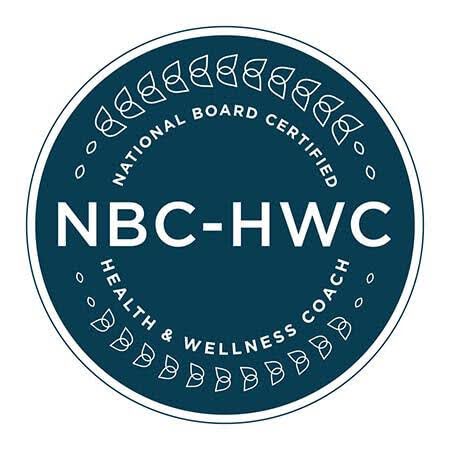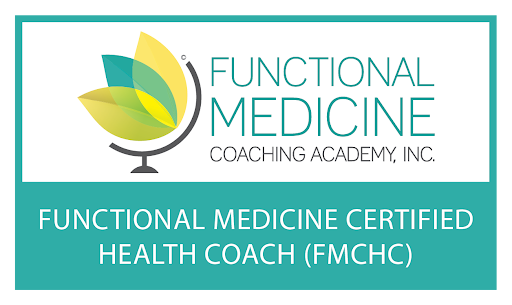Vitality Unleashed
A program for wellness-driven mid-lifers under the gun
Trade health risks for vitality & longevity with a tailored regimen.


Cholesterol Combat
Masterclass
Master the subtle art of cholesterol management with a program specially designed to equip you with knowledge and practical steps to defeat high cholesterol.

Family Fulfilment
Package
Achieve health goals and win your family's admiration with a wellness program nuanced to balance professional commitments, family expectations, and personal health.

Doctor's Delight
Solution
Turn your healthcare provider's concerns into compliments with a heart-healthy program combining strategic nutrition and exercise, aimed at significantly lowering heart disease risks without medication.

About Us
Donovan Maycock, a National Board-Certified Health and Wellness Coach, is devoted to transforming lives with expertise in managing high cholesterol. Bringing over a decade of experience as both a Nutrition and Wellness Consultant and Functional Medicine Health Coach, Maycock serves a clientele committed to health improvement. His mission: to guide professional men in their 40's and 50's under medical and familial pressure to enhance heart health and evade medication. His offering: a purpose-built Cholesterol Reduction program, blending optimal nutrition and exercise regimes. The result: healthier clients, lower cholesterol levels, and a better quality of life – achievable, sustainable, and within grasp. As Donovan says, "It's about showing the steps - not just telling - to reach potential health heights."
YOU MAY HAVE SEEN ME ON


Testimonials
I was 25 lbs overweight, my energy levels were low along with my self-esteem. After two weeks on the nutritional plan from Coach Donovan the results were immediate. More energy for work and play. My self-confidence and self-esteem increased significantly. I remember running out of breath and soaking my shirt with sweat just to walk up a flight of stairs at work. At 55 years of age I feel like 35 again. There are no limits to what I want to do.
James C
Many people invest money into a fitness personal trainer. I decided to invest in a nutritionist as my personal food trainer. Everyone knows you should eat healthier. However, not everyone knows exactly what that means. With Coach Donovan I learned what it means! I look better, I feel better and I sleep better. I’m excited about this program.
R.G.
I have been working with Donovan over a period of 3 years and received excellent nutrition advice, including recipes, daily meals, and shopping advice that was so helpful. Donovan taught me how to keep a food log online, and how to lift weights and this knowledge was critical to losing weight and keeping it off.
J
The program with Donovan was awesome. I lost 59 lbs and completely changed my eating habits. I highly recommend this program!!
Fred L.
Coach Donovan has been instrumental in guiding me towards a healthier lifestyle, with a particular emphasis on nutrition. When I embarked on this journey, my cholesterol levels were alarmingly high. At the age of 52, I was a prime candidate for a heart attack.
In 2017, my total cholesterol was 160, HDL was 30, and triglycerides were at 257. Seven years later, thanks to Donovan’s program, my health indicators have improved significantly. My cholesterol is now at 122, HDL at 52, and triglycerides at 64, making me as healthy as a 40-year-old.
In 2021, I underwent a Calcium Score test, which registered at 75. Since then, every cardiologist appointment has resulted in a clean bill of health.
I attribute this remarkable transformation to the invaluable education I received while working with Donovan. His guidance has truly made a difference in my life.
Ray L
Blog

Unlocking Heart Health: The Fundamental First Steps
In the intricate web of human health, the heart stands as a sentinel, guarding our well-being with every beat. Yet, in the hustle and bustle of modern life, we often overlook the importance of nurturing this vital organ.
In this blog post, we will discuss the foundational steps toward heart health – small yet significant changes that can pave the way for a lifetime of cardiovascular wellness.
Understanding Heart Health
Before delving into the first steps toward heart health, it's essential to grasp what constitutes a healthy heart. At its core, heart health encompasses the well-being of the cardiovascular system, including the heart itself and the blood vessels that nourish it. A
healthy heart pumps blood efficiently, delivering oxygen and nutrients to the body's tissues while removing waste products.
The First Steps Toward Heart Health
In the symphony of life, our heart plays the lead role, orchestrating the rhythm of our existence with each steady beat.
1. Prioritize Nutrition:
Nutrition serves as the cornerstone of heart health, influencing factors such as cholesterol levels, blood pressure, and weight management. Embracing a heart-healthy diet rich in fruits, vegetables, whole grains, lean proteins, and healthy fats can significantly reduce the risk of cardiovascular disease.
Limiting intake of saturated and trans fats, sodium, and added sugars further supports heart health.
2. Get Moving:
Physical activity is another essential component of heart health. Regular exercise strengthens the heart muscle, improves circulation, and helps maintain a healthy weight.
Aim for at least 150 minutes of moderate-intensity aerobic activity or 75 minutes of vigorous-intensity activity each week, supplemented by muscle-strengthening activities on two or more days per week.
3. Manage Stress:
Chronic stress can take a toll on the heart, contributing to high blood pressure, inflammation, and unhealthy coping behaviors such as overeating or smoking.
Implementing stress management techniques such as mindfulness meditation, deep breathing exercises, or engaging in hobbies and activities that bring joy and relaxation can help mitigate the effects of stress on the cardiovascular system.
4. Quit Smoking:
Smoking remains one of the most significant risk factors for heart disease, increasing the likelihood of heart attack, stroke, and other cardiovascular complications.
Quitting smoking is one of the most impactful steps people can take to improve heart health. Support resources such as smoking cessation programs, counseling, and nicotine replacement therapies are available to assist in the quitting process.
5. Maintain a Healthy Weight:
Excess weight, particularly around the waistline, is associated with an increased risk of heart disease, diabetes, and other chronic conditions.
Adopting a balanced diet and regular exercise routine can help achieve and maintain a healthy weight, reducing strain on the heart and lowering the risk of cardiovascular complications.
6. Monitor Blood Pressure and Cholesterol:
Regular monitoring of blood pressure and cholesterol levels is crucial for early detection and management of cardiovascular risk factors. Elevated blood pressure and cholesterol levels can indicate an increased risk of heart disease and stroke.
Lifestyle modifications, medication, or a combination of both may be recommended to keep these parameters within healthy ranges.
7. Prioritize Sleep:
Quality sleep is essential for heart health, allowing the body to repair and regenerate while supporting overall well-being. Aim for seven to nine hours of uninterrupted sleep each night and establish a relaxing bedtime routine to promote restful sleep.
Addressing underlying sleep disorders such as sleep apnea can further optimize cardiovascular health.
8. Limit Alcohol Consumption:
While moderate alcohol consumption may have some cardiovascular benefits, excessive drinking can harm the heart and increase the risk of conditions such as high blood pressure, cardiomyopathy, and arrhythmias. To promote heart health, limit alcohol intake to moderate levels – up to one drink per day for women and up to two drinks per day for men.
9. Stay Hydrated:
Proper hydration is essential for maintaining optimal heart health. Drinking an adequate amount of water helps support circulation, regulate blood pressure, and prevent dehydration, which can strain the heart. Aim to drink at least eight glasses of water per day, adjusting intake based on people's needs and activity levels.
10. Incorporate Heart-Healthy Foods:
In addition to prioritizing overall nutrition, incorporating specific heart-healthy foods into your diet can provide additional benefits. Foods rich in omega-3 fatty acids, such as salmon, walnuts, and flaxseeds, help reduce inflammation and support cardiovascular health.
Other heart-healthy options include oats, legumes, avocados, and nuts, which provide fiber, antioxidants, and essential nutrients.
11. Practice Mindful Eating:
Mindful eating involves paying attention to the present moment and savoring each bite, rather than eating mindlessly or rushing through meals. By slowing down and tuning into hunger and fullness cues, you can prevent overeating, improve digestion, and make healthier food choices.
Mindful eating also fosters a deeper connection with food and promotes a positive relationship with eating.
12. Schedule Regular Health Check-ups:
Regular health check-ups are essential for monitoring heart health and detecting any potential issues early on. Schedule annual appointments with your healthcare provider for routine screenings, such as blood pressure, cholesterol, and blood sugar tests.
These screenings help assess your risk factors for heart disease and allow for timely intervention and management as needed.
Conclusion
In conclusion, the journey toward heart health begins with small yet impactful steps that prioritize nutrition, physical activity, stress management, and healthy lifestyle habits.
By adopting these fundamental practices, people can take proactive measures to protect their cardiovascular health and reduce the risk of heart disease and related complications.
FAQs
1. How can I determine if I'm at risk for heart disease?
Assessing your risk for heart disease involves evaluating factors such as family history, lifestyle habits, and existing health conditions. Schedule a check-up with your healthcare provider to discuss your risk factors and undergo any necessary screenings or tests to assess your cardiovascular health.
2. What role does diet play in heart health?
Diet plays a significant role in heart health, as consuming a balanced diet rich in fruits, vegetables, whole grains, lean proteins, and healthy fats can help lower cholesterol levels, reduce inflammation, and support overall cardiovascular wellness.
3. How much exercise do I need for a healthy heart?
Aim for at least 150 minutes of moderate-intensity aerobic exercise or 75 minutes of vigorous-intensity exercise per week, along with muscle-strengthening activities on two or more days per week. Find activities you enjoy and make exercise a regular part of your routine to support heart health.

The Extra Mile: How to unlock your highest potential
Unlock the secret to better digestive health with 'Gut Feeling.' Discover how to nourish your gut and improve your overall well-being. ... more
mind and body
08 April 2024 • 7 min read

